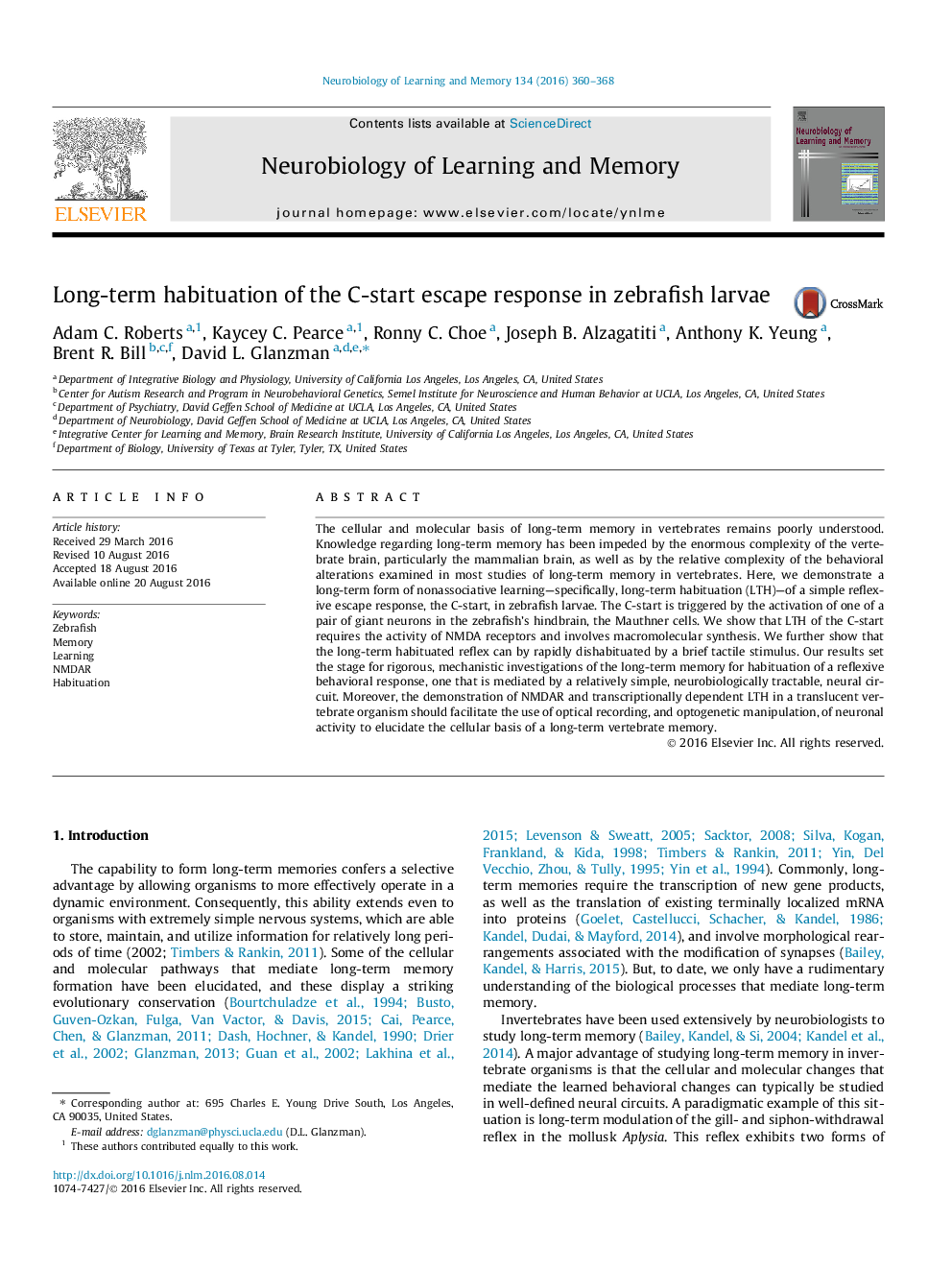| Article ID | Journal | Published Year | Pages | File Type |
|---|---|---|---|---|
| 5043279 | Neurobiology of Learning and Memory | 2016 | 9 Pages |
â¢Demonstrated long-term habituation of the escape C-start reflex in zebrafish larvae.â¢Long-term habituation of the zebrafish C-start reflex is NMDA receptor dependent.â¢Long-term habituation of the C-start reflex requires RNA transcription.â¢Tactile stimuli can easily dishabituate long-term habituation of the C-start reflex.
The cellular and molecular basis of long-term memory in vertebrates remains poorly understood. Knowledge regarding long-term memory has been impeded by the enormous complexity of the vertebrate brain, particularly the mammalian brain, as well as by the relative complexity of the behavioral alterations examined in most studies of long-term memory in vertebrates. Here, we demonstrate a long-term form of nonassociative learning-specifically, long-term habituation (LTH)-of a simple reflexive escape response, the C-start, in zebrafish larvae. The C-start is triggered by the activation of one of a pair of giant neurons in the zebrafish's hindbrain, the Mauthner cells. We show that LTH of the C-start requires the activity of NMDA receptors and involves macromolecular synthesis. We further show that the long-term habituated reflex can by rapidly dishabituated by a brief tactile stimulus. Our results set the stage for rigorous, mechanistic investigations of the long-term memory for habituation of a reflexive behavioral response, one that is mediated by a relatively simple, neurobiologically tractable, neural circuit. Moreover, the demonstration of NMDAR and transcriptionally dependent LTH in a translucent vertebrate organism should facilitate the use of optical recording, and optogenetic manipulation, of neuronal activity to elucidate the cellular basis of a long-term vertebrate memory.
